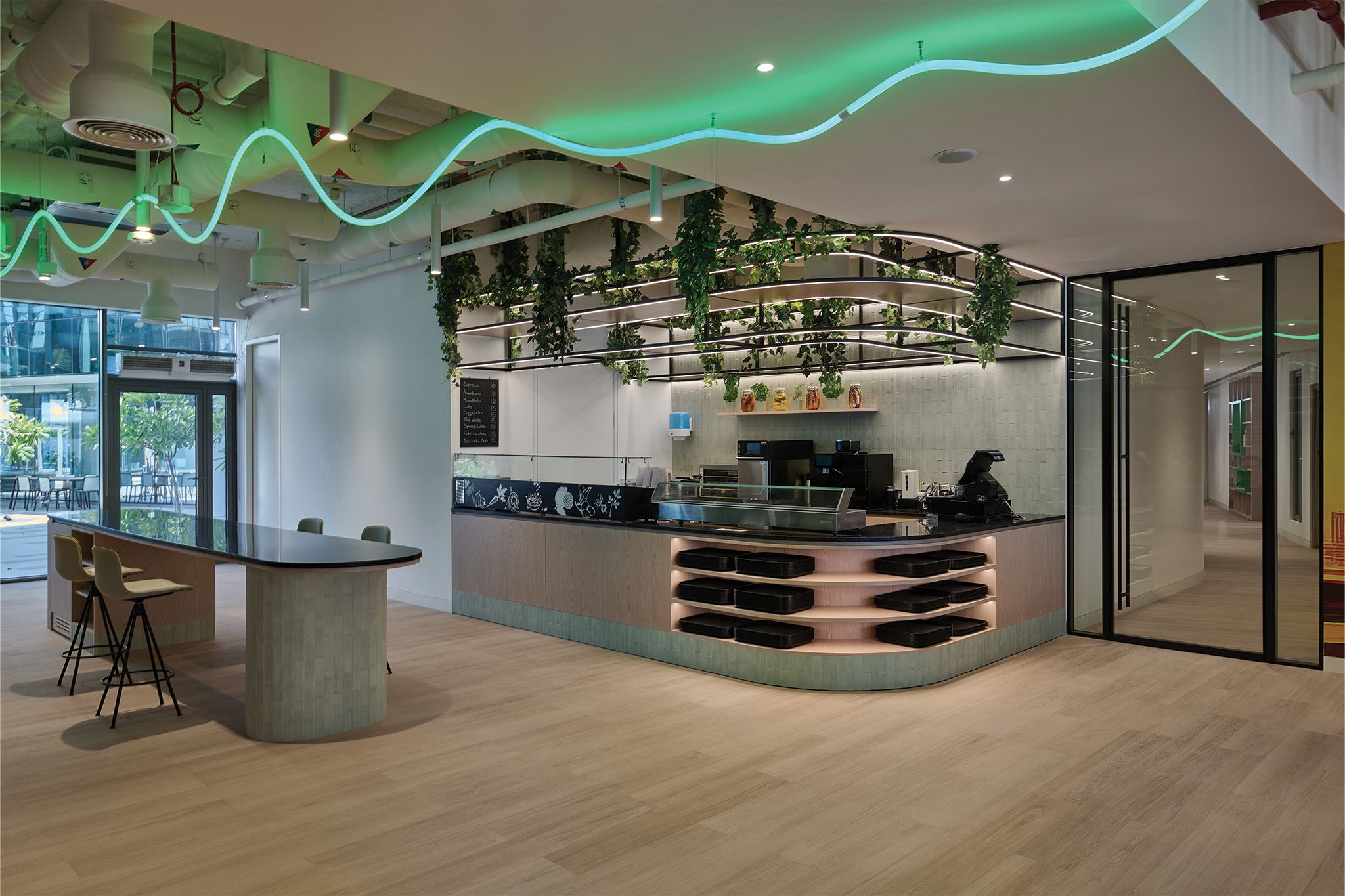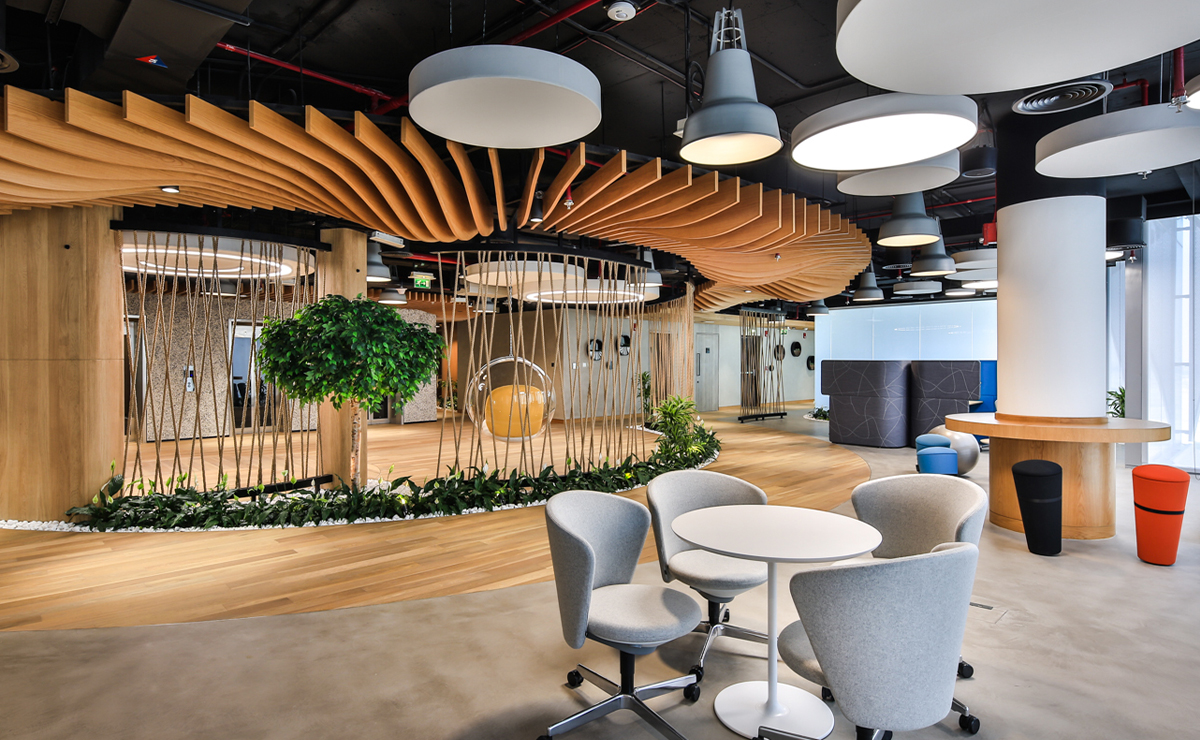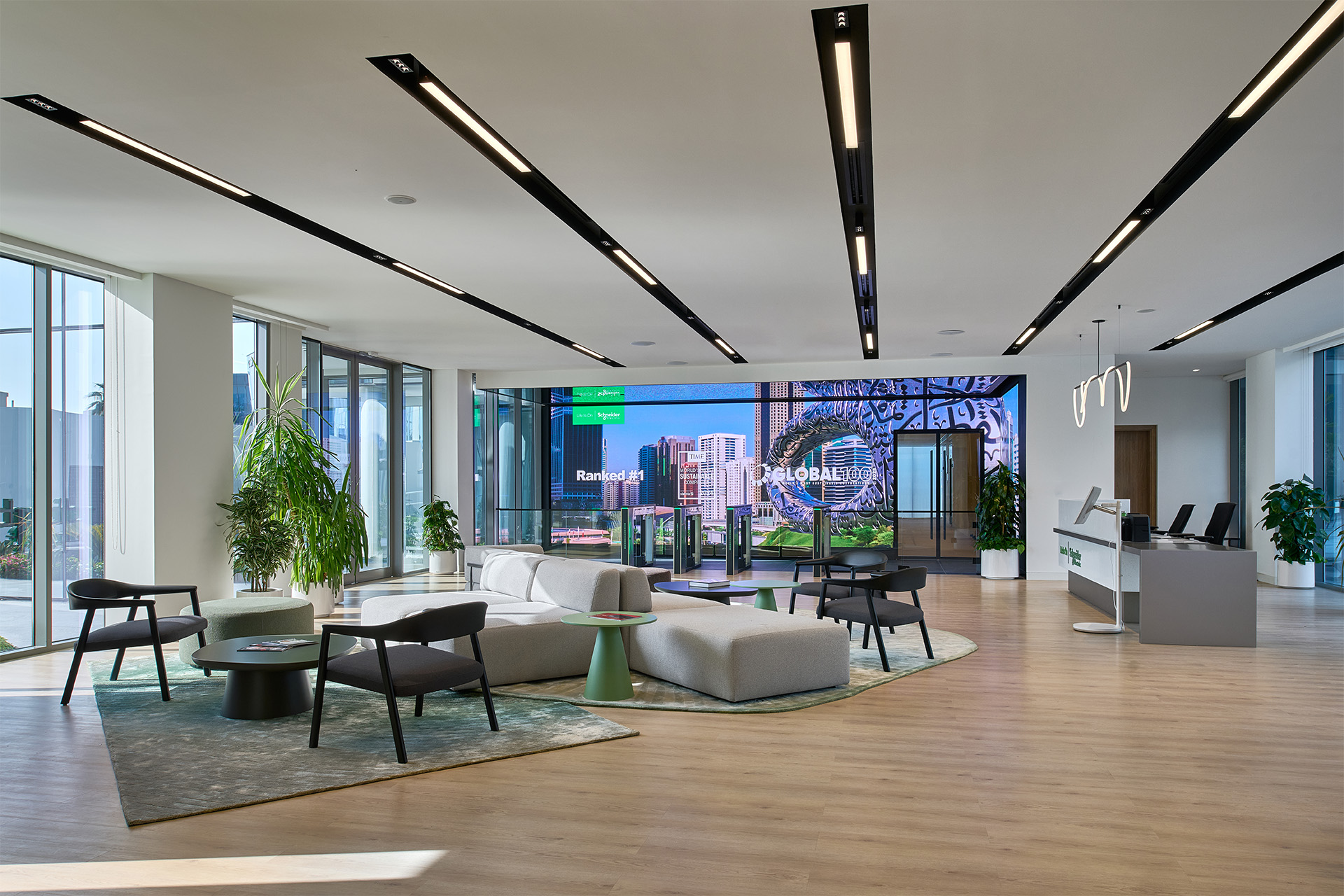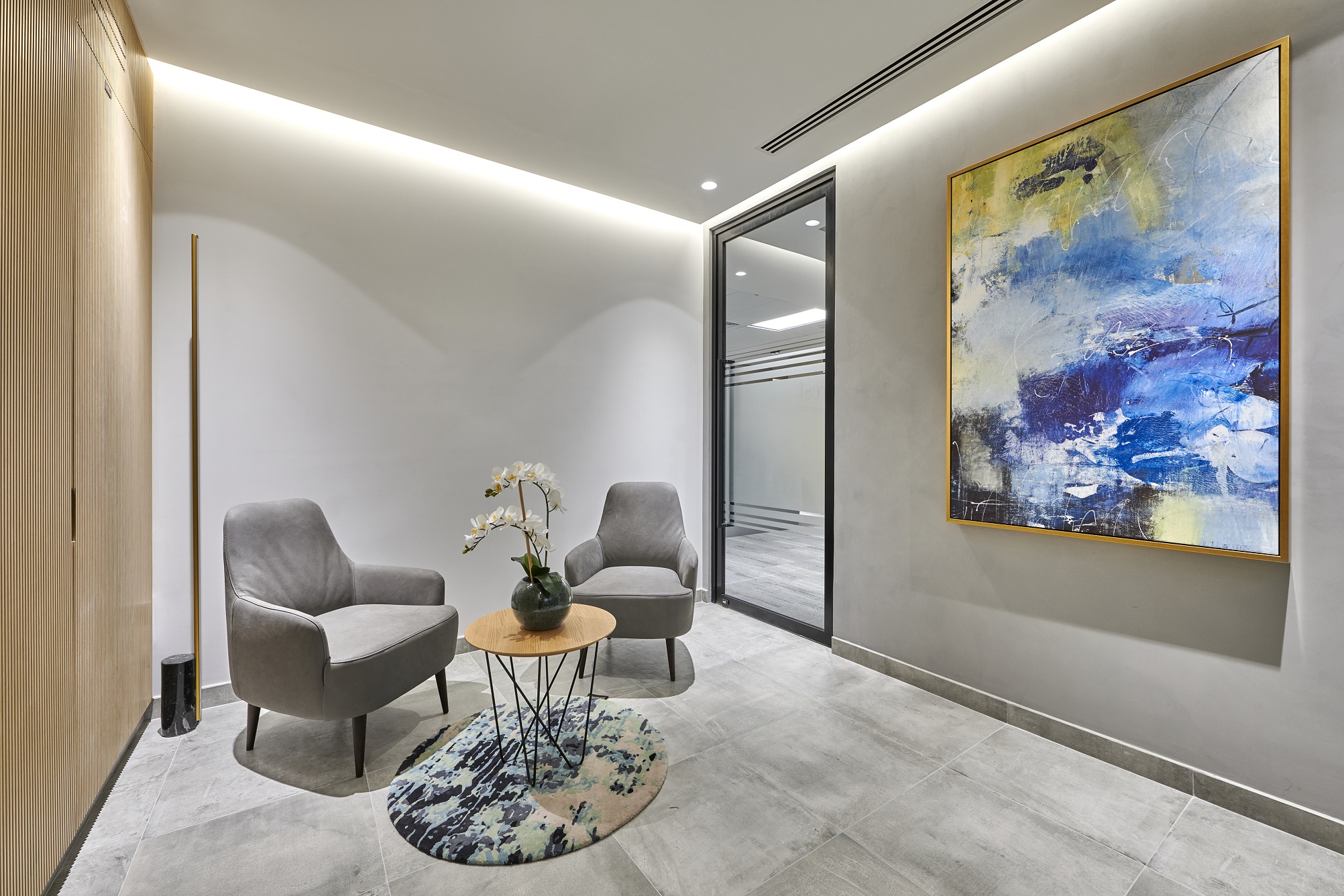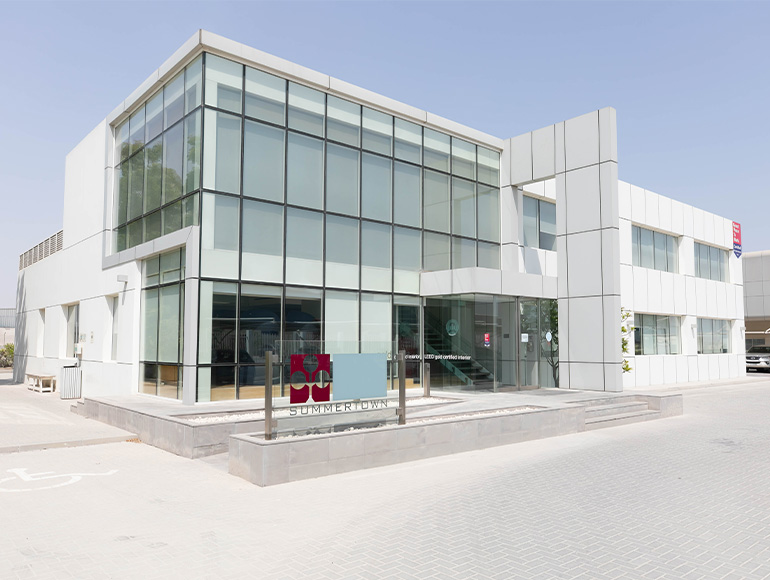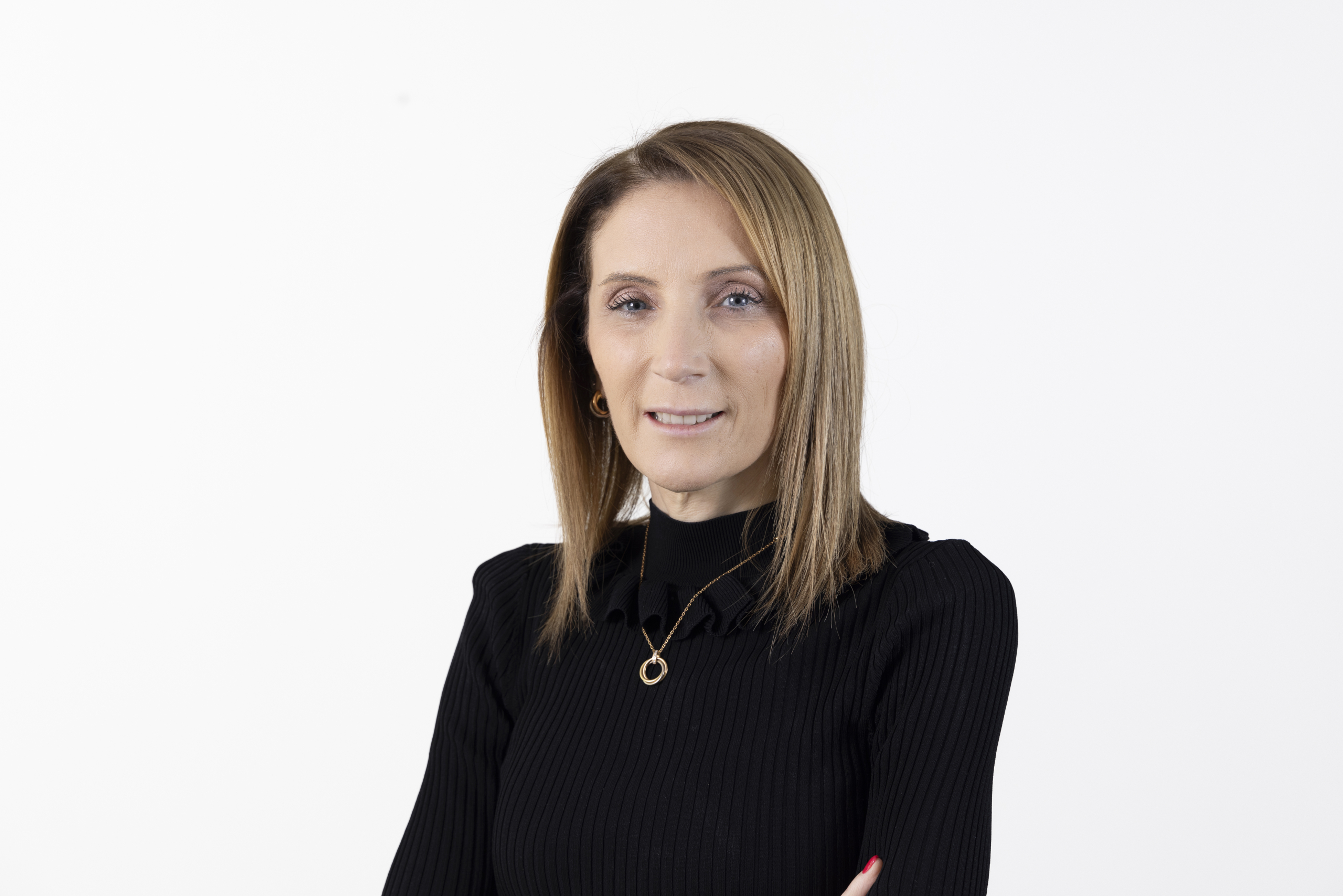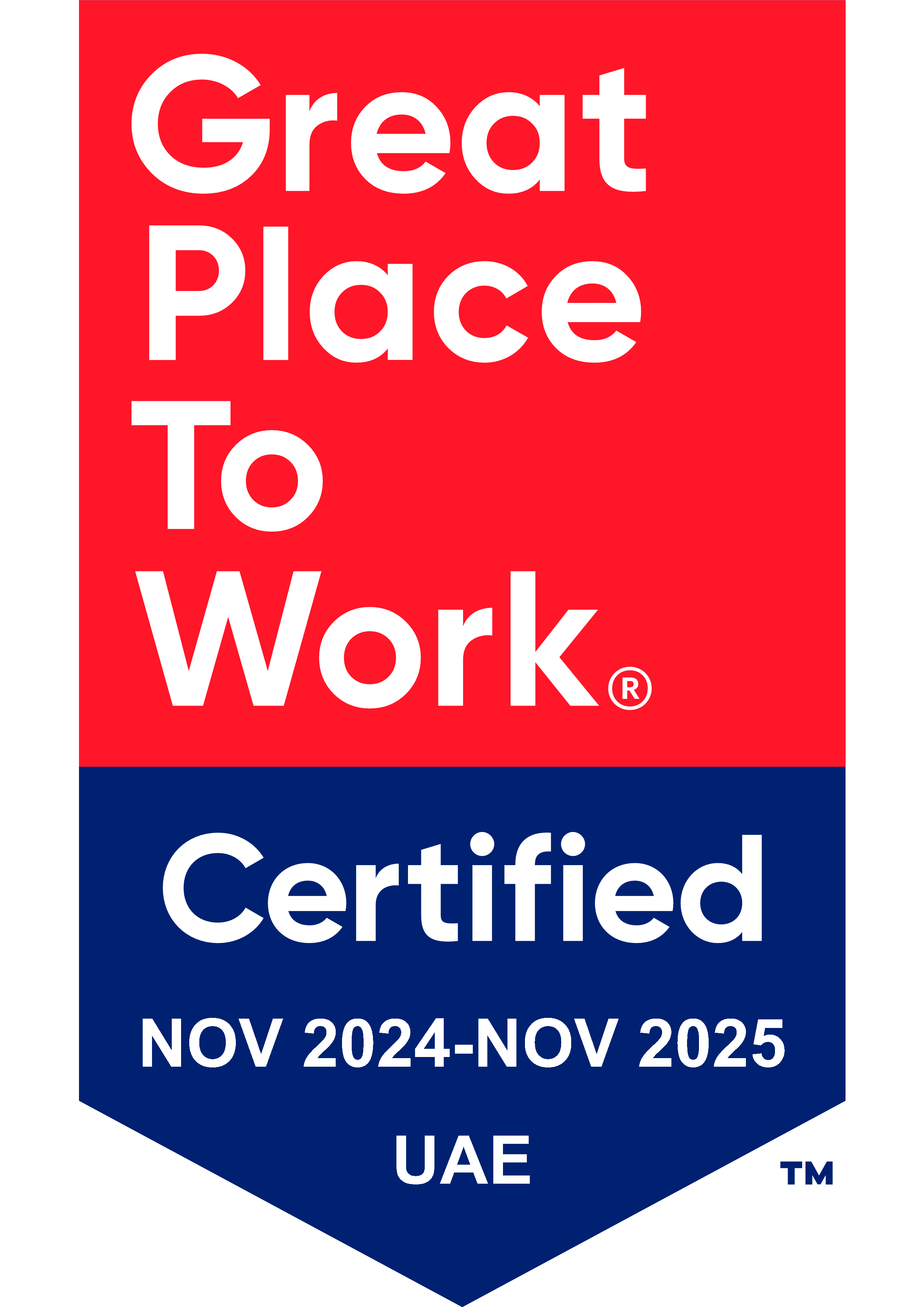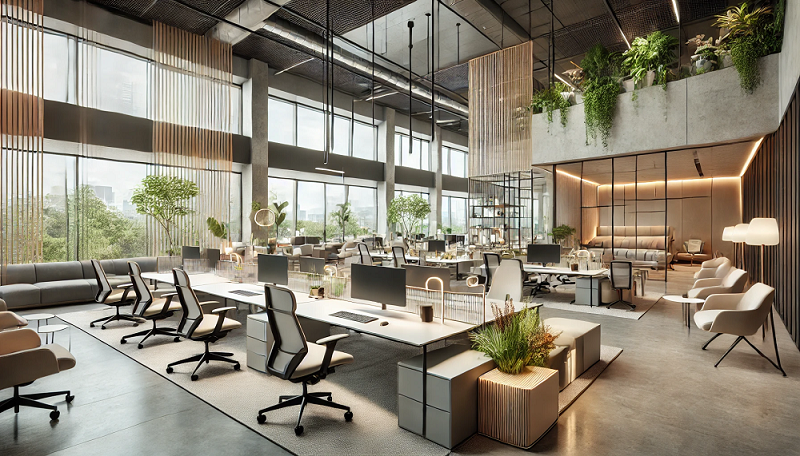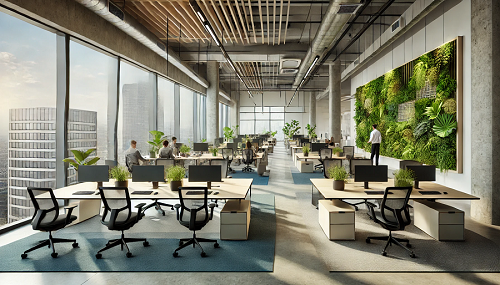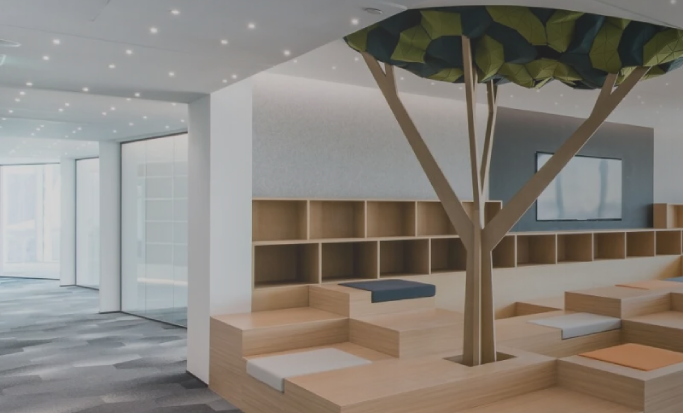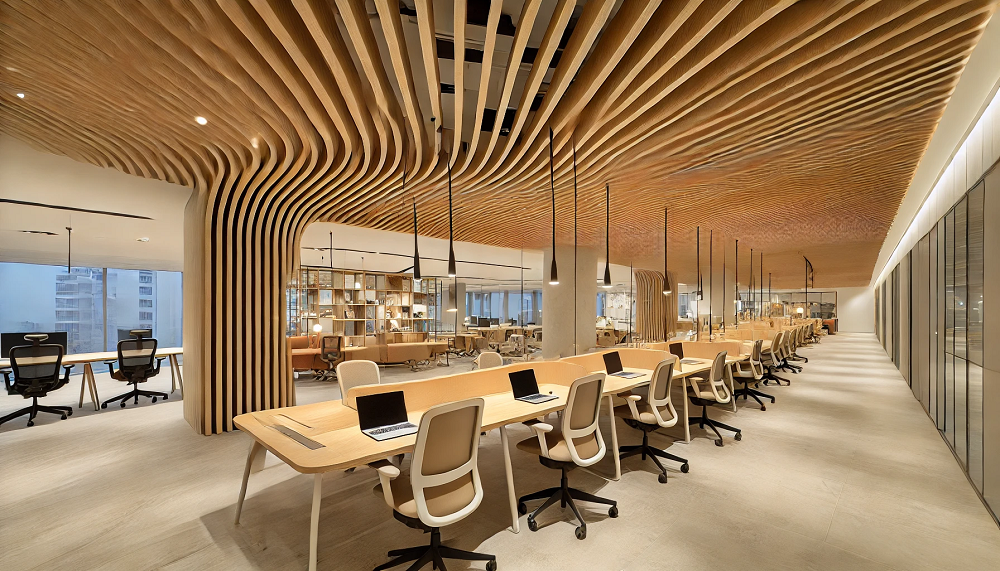

Nicola Trivett
General Manager & Sustainability Leader
When clients or employees step into your office, what message does your space send? Today, the workspace is no longer just a place where tasks are completed – it’s an extension of a company’s identity. Custom office fit-outs are a powerful tool that allow companies to communicate their brand values, organisational culture, and ambitions. The physical office is not just about functionality; it’s an embodiment of the brand itself.
Globally, and particularly in the UAE, this trend is gaining momentum. Forward-thinking businesses are crafting bespoke workspaces that reflect their ethos, connecting their physical environment to their core values. More than ever, companies are realising that the design of their office can significantly enhance not only employee experience but also how they are perceived externally.
Bringing Brand Values to Life through Office Design
Every company strives to express its core values clearly. Often, these values are conveyed through brand messaging, customer service, and internal practices. But these values can also be embedded into the very architecture of the workspace, creating a space that is very obviously on-brand. Custom office fit-outs allow businesses to translate their brand ethos into the design, ensuring that every visitor and employee experiences those values as soon as they step through the door.
Academic research highlights how corporate identity and architecture are closely linked – for example, a study from Middlesex University demonstrated that employees are more likely to feel connected to their company’s values when the design of the workspace reinforces those values. Whether it’s open, collaborative spaces that reflect teamwork or sustainable materials that support an organisation’s environmental commitments, office design is a direct reflection of corporate priorities.
For instance, if a company values innovation and flexibility, this can be expressed through dynamic workspaces that include both collaborative hubs and quiet, adaptable areas. On the other hand, a company deeply committed to sustainability might use reclaimed materials and energy-efficient designs to reinforce its values, not just as a corporate policy but as a daily, lived experience for employees.
The Power of Space in Communicating Corporate Culture
Office design speaks volumes about a company’s internal culture. Whether intentional or not, the way an office is structured can either reinforce or undermine the organisation’s culture. Research suggests that the design and architecture of a workspace significantly impact how employees and clients perceive a company’s ethos.
The Middlesex University study mentioned earlier points out that architecture and design are essential in building “organisational identification,” a term referring to how employees align with and internalise the company’s values. When employees see their workspace as a physical representation of what the company stands for, their connection to the brand becomes more profound. This is particularly relevant in industries that thrive on collaboration, where open spaces and communal areas can foster teamwork and innovation.
Flexible workspaces are designed with both form and function in mind – allowing for fluid movement between focused work, collaboration, and social interaction. For example, companies that prize innovation often design their spaces to encourage casual, impromptu interactions between colleagues, which can spark creativity and enhance problem-solving.
The Workplace as a Brand Ambassador
The most effective office fit-outs turn the workspace into a brand ambassador. The physical space communicates the company’s values and culture as effectively as a marketing campaign. Clients, partners, and potential hires can often discern a great deal about an organisation simply by walking through its office. This is particularly critical for companies aiming to build a strong brand presence that resonates both internally and externally.
Academic studies and workplace research show that well-designed environments reinforce the company’s message. The workspace essentially “speaks” for the company, setting the tone for interactions, professionalism, and even how employees view their role within the organisation. A study from the National Center for Biotechnology Information (NCBI) shows how environmental design affects perceptions of trust, professionalism, and credibility in business settings. This further supports the idea that the office can play an ambassadorial role in shaping external perceptions.
A practical example of this concept would be a company striving for transparency and openness. They may opt for glass walls and open-plan spaces that reflect these values visually. Conversely, an organisation focusing on privacy and security might design their workspace with secluded meeting areas and advanced soundproofing, ensuring that their commitment to confidentiality is reflected in the environment.
Customisation Meets Functionality: Practical and Personalised Design
While bespoke office designs allow companies to communicate their identity, they must also be practical. A workspace needs to facilitate productivity, comfort, and functionality while still reflecting the brand ethos. The best office designs balance these factors, ensuring that employees are not only inspired by their surroundings but also able to work efficiently within them.
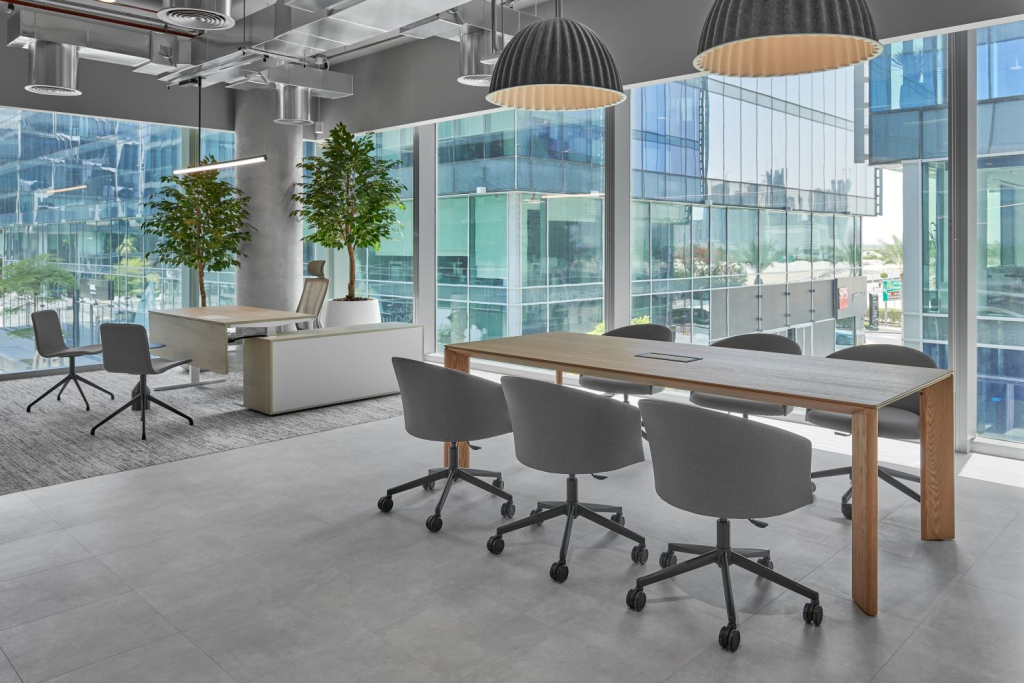
Research in the Journal of Innovation in Science and Educational Development outlines how functional design is essential to employee well-being and productivity, especially when aligned with corporate values. Offices that are overly focused on aesthetic appeal without considering the day-to-day needs of employees can end up hindering productivity. The key is to create spaces that allow flexibility, adaptability, and ease of use without sacrificing the brand message.
For example, a company that requires high levels of collaboration might incorporate movable furniture, modular spaces, and multi-functional areas that allow for a variety of work modes. Meanwhile, a more traditional firm might prioritise private offices and structured meeting rooms, ensuring that their space reflects the values of formality and precision.
First Impressions Matter: Setting the Right Tone
The design of a workspace plays a critical role in creating first impressions. When visitors – whether clients, prospective employees, or business partners – walk into an office, they immediately form an opinion of the company. The physical environment is a powerful tool in shaping these perceptions, conveying professionalism, trustworthiness, and innovation.
Research from NCBI reinforces the importance of first impressions, showing that well-designed office environments positively influence how people perceive a company’s credibility and authority. This is a crucial insight for businesses that are looking to build strong, long-term relationships with their clients or partners.
Imagine entering an office with a minimalist design, featuring high-end finishes and clean lines. The immediate perception is likely one of professionalism, attention to detail, and efficiency. On the other hand, walking into a space that feels cluttered or dated might give the impression that the company is less focused on innovation or quality.
For companies that deal with high-stakes clients or industries where reputation is key, a well-designed office can be a subtle yet impactful way to reinforce trust and reliability.
Custom Office Fit-outs as Strategic Brand Tools
Custom office fit-outs are not just about creating a functional space – they are an extension of a company’s identity. By aligning design choices with corporate values, businesses can create environments that act as powerful brand ambassadors. These spaces communicate the company’s ethos to everyone who walks through the door, whether it’s an employee, client, or business partner.
Studies in workplace psychology and architecture consistently show that the design of a workspace can significantly influence both internal culture and external perceptions. Custom office fit-outs allow companies to take control of that narrative, ensuring that their values, culture, and brand identity are clearly reflected in every aspect of their physical environment.
By prioritising both functionality and brand expression, businesses can transform their office into a strategic asset that drives engagement, productivity, and trust.
Is your workspace telling the right story? Contact Summertown Interiors to explore how a bespoke fit-out can align your office with your brand.
References:
Middlesex University Repository – Corporate Identity, Architecture, and Organisational Identification: https://repository.mdx.ac.uk/download/610eea107a41de616a91cbc3006d29ab9a5e60a0ad6ee920ca567baa582cb95d/605152/CorporateIdentityArchitectureAndIdentification.pdf
Journal of Innovation in Science and Educational Development (JISEd) – Article on design and organisational culture: https://academicinspired.com/jised/article/view/1491
National Center for Biotechnology Information (NCBI) – Research on physical environment and perception: https://www.ncbi.nlm.nih.gov/pmc/articles/PMC11050261/

Nicola Trivett
General Manager & Sustainability Leader



